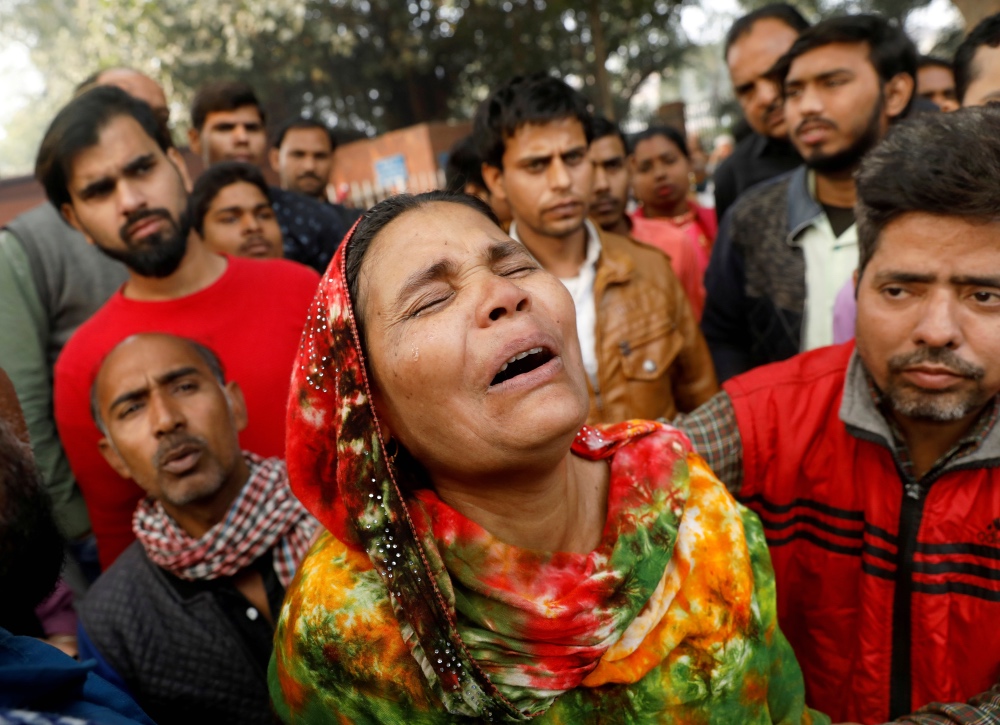Chennai, India
Thomson Reuters Foundation
Thousands of migrant workers in India are at risk from accidents like the factory fire that has killed 43 people in New Delhi, campaigners said on Monday, urging the government to clamp down on illegal sweatshops.
The blaze swept through a four-storey building in the Indian capital where workers producing school bags and toys were sleeping early on Sunday, in the capital’s deadliest fire in 20 years.

A relative of a victim of a fire that swept through a factory where laborers were sleeping, cries outside a hospital mortuary in New Delhi, India on 8th December. PICTURE: Reuters/Adnan Abidi
Witnesses said fire engines had struggled to access the congested lane where the building was located.
Dithhi Bhattacharya, executive director of charity Centre for Workers’ Management, said it was an accident “waiting to happen”, blaming a government failure to clamp down on illegal sweatshops that employ people in slave-like conditions.
“All those who died in this fire were working at the lowest rung of a supply chain of small scale manufacturers,” she said.
“These are the migrant workers, who are regularly being pushed into the most hazardous and inhuman conditions of work. And they are supplying to a largely unmapped but big domestic market.”
More than 90 per cent of India’s workforce – an estimated 400 million people – are in informal employment. This includes labourers on farms and construction sites, as well as in shops, hotels, restaurants and manufacturing units.
Like the men killed in Sunday’s fire, many sleep where they work to save on rent, access subsidised food and work longer hours to earn more.
A senior official in the Indian labour ministry who spoke on condition of anonymity because he was not permitted to speak to the media said there were “challenges” in implementing the laws governing factories.
“Manufacturers need to understand that compliance is not optional. We need to educate people more on this,” he added.
Campaigners for workers’ rights said there was a need for more inspections and for the government to create proper support systems for factory workers facing exploitation.
“The workers literally live from hand to mouth, living, cooking and sleeping in cramped rooms in the factory,” labour rights lawyer Kumar Ravi Shankar told the Thomson Reuters Foundation.
“There are no checks in these areas, no inspections, even though they are producing large quantities of goods sold on the streets and catering to the Indian consumer.”
Bhattacharya said the fire showed the “total failure of inspectors”.
“In the future this is going to happen more as the government brings in labour reforms that further reduce inspections,” she added.





